Culled from the pages of Canada’s feminist quarterly journal, Canadian Woman Studies Journal/les cahiers de la femme, The Missing Line includes recent and varied work by twelve Canadian poets whose work is in turn both poignant and playful. The poets are: Carol A. Adams, Joan Bond, Rosita Georgieva, Kristjana Gunners, Anne Duke Judd, Marlene Kadar, Lea Littlewolfe, Renee Norman, Rhoma Spencer, Susan Swan, Joanna A. Weston, and Patience Wheatley. In The Missing Line Marlene Kadar has selected poetry that takes us out of the twentieth century and into the twenty-first, helping to make better sense of a burgeoning women’s tradition of poetry in English Canada.

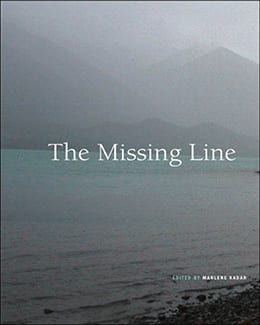
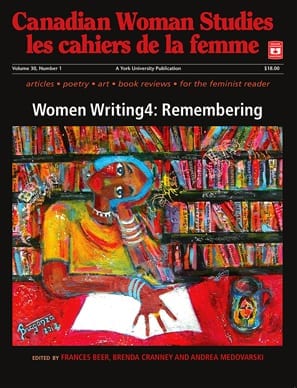
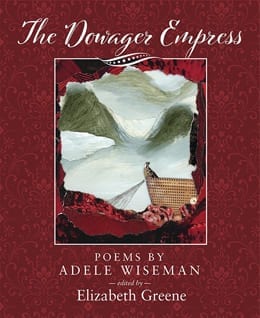
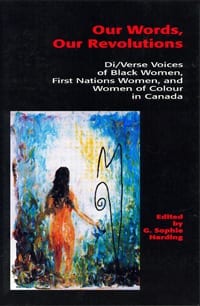
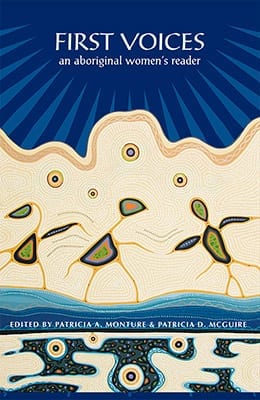

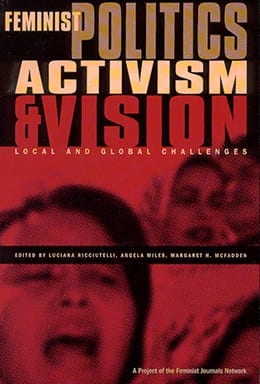
InannaWebmaster –
The Missing Line
Reviewed by Amanda Truscott
Contrary to popular belief, not all Canadian women¹s poetry is about life on the farm. The Missing Line, a collection of poems from the feminist quarterly journal, Canadian Woman Studies, includes its fair share of cattle wrangling, butter churning and child-birthing. However, it also includes
some of the unexpected.
Some of the poems are startlingly beautiful and original. Marlene Kadar, the anthology¹s editor, explodes the stereotype of women who play hockey as unfeminine in her poem, ³Third Liner.² The poem is about a woman whose beauty is in no way at odds with her fierce love of the game. I couldn¹t help feeling a little shiver of pleasure as I read the lines, ³Two young eyes deep in their dark beauty chase the puck across the goalie¹s barricade/She scores, she scores again, and those dark eyes stay/Calm, the eyeliner runs at right angles to the bent wire mask.² Her starkly simple writing cuts deeply. In Kardar¹s ³Barbaric poem,² a response to Theodore Adorno¹s assertion that ³to write poetry after Auschwitz is barbaric,² she replies, ³To write poetry after Auschwitz is all we can know.²Many of the poems question women¹s traditional desires. Some do this more compellingly than others. Lea Littlewolfe ends her poem ³Breakfast,² about a group of seniors leaving a church, with this question: ³do the lone flowers envy their labouring sisters?² referring to those of the women who are left without husbands onto whose ³butt and groins² they can ³massage zinc oxide cream.² The metaphor of the old women as ³flowers² is a little incongruous with the idea that they are capable of labour, but it contrasts interestingly with the grotesque imagery Littlewolfe associates with the often-romanticized ³old married couple.²
There are only a few pieces in the collection that didn¹t resonate as strongly. Joan Bond¹s ³Dandelions,² in which the speaker¹s idealized husband ³extirpates² the little yellow pests from their front lawn, has some weaker lines such as ³you dig deep/my love digs deeper.² Luckily, the less resonating poetry included in The Missing Line is redeemed by poems like Patience Wheatley¹s ³Kissing Under a Winter Sky.² She aptly describes the shock of falling in love as ³meaningless yet intriguing that/can fit you under the bow of Orion/shove you under the kilt of Perseus, and the square belly of his horse.²
Despite the occasional dud, the poems are fresh, thought provoking, full of beautiful, surprising imagery and sharp insight.
This review was published in The Ubyssey ³Women¹s Issue,² Volume 86, Issue
no. 42, March 11, 2005: 7. Reprinted with permission.